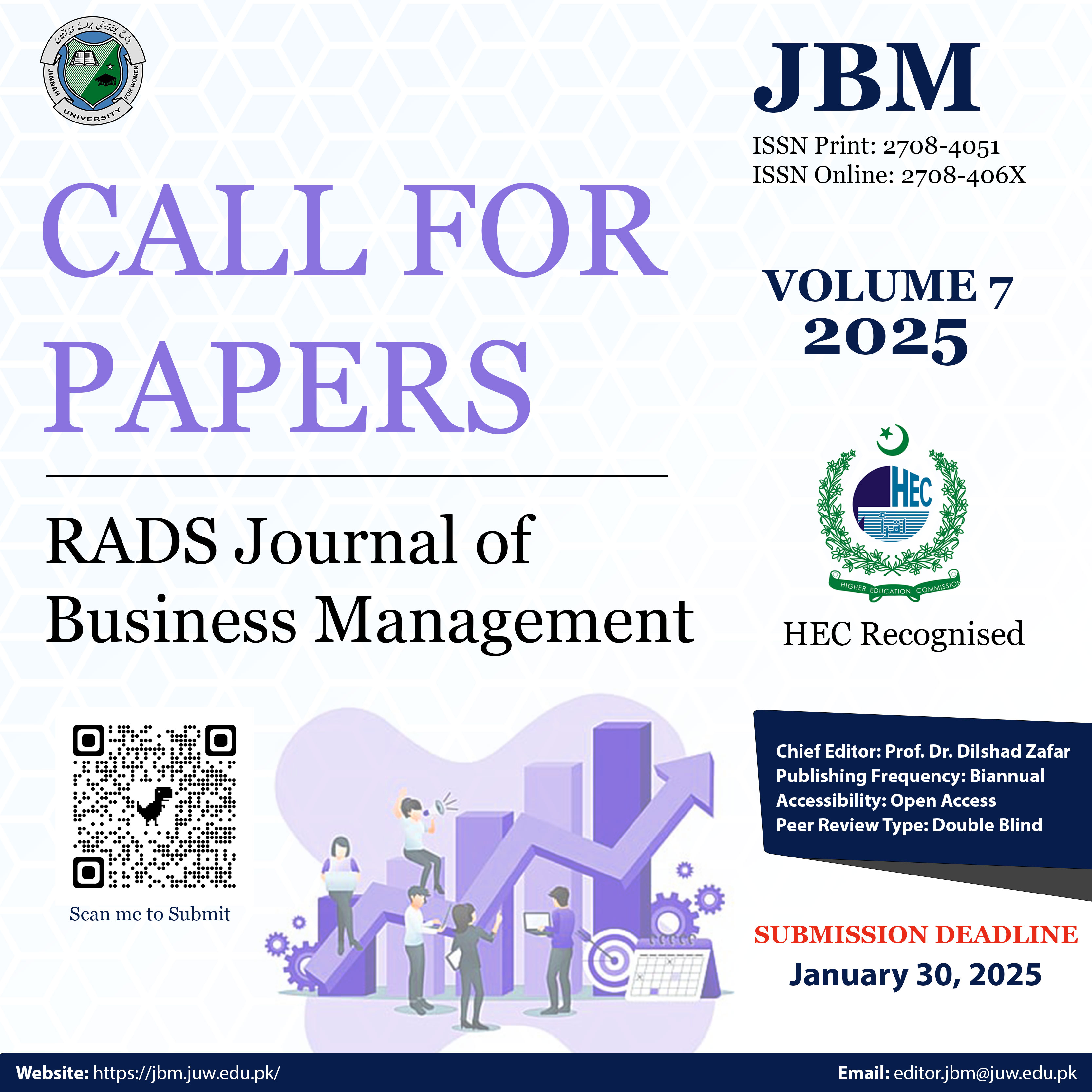Effect of Organizational Identification, Work Regulatory Focus and I-Deals on Unethical Pro-Organizational Behaviors: The Pharmaceutical Industry
Abstract
Evidently, concerns about unethical pro-organizational conduct have been more prevalent recently. In a time when businesses prioritize long-term business relationships and client orientation, dishonest selling behavior would unquestionably be counterproductive. Social effects result from unethical pro-organizational behavior in the pharmaceutical industry. This study aims to pinpoint the most significant forerunners of unethical pro-organizational behavior in the pharmaceutical business.
The study aims to determine how organizational identification, unique business arrangements, and work-related regulatory focus affect unethical pro-social behaviors in Pakistan's pharmaceutical sales sector.
SEM analysis employing convenience sampling was performed on the data of 308 national and international pharmaceutical sales managers that were obtained via online questionnaires.
The research reveals that organizational identity, peculiar agreements, and work regulation emphasis have statistically significant effects on unethical pro-social activities. The research finds that the two dimensions of work regulation emphasis and the four idiosyncratic deal dimensions strongly influence unethical pro- pro-social actions.
The study is the first to look at the impact of identification, unique business arrangements, and work regulatory foci on unethical pro-social behaviors. New hires should be chosen by the HR managers based on moral considerations. The supervisors need to be aware that work regulatory foci, organizational identification, and idiosyncratic deals have the potential to result in UPB.

This work is licensed under a Creative Commons Attribution 4.0 International License.
The author retains the copyright and grants the right of first publication to the journal.





